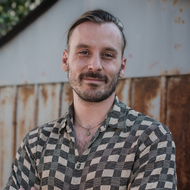Description
This simulation game focuses on developing common practices to deal with a violent national past. The issues are complex and diverse: How to deal with conflicting narratives about history, identity and memory after a violent conflict? Why is reconciliation a cornerstone of social participation and sustainable peace and what can be done if it is hard to reach? What are the dynamics, potentials and risks of transitional justice initiatives for local populations? The participants simulate a national conference in order to find common answers to these difficult questions.
Scenario
In this highly dynamic simulation game, the participants are located in a fictional country that is grappling withthe aftermath of a civil war. Despite an internationally brokered peace agreement traumas of the war are still very much present. Although authorities of the victorious majority group believe they are acting according to democratic principles, their narratives dominate the media and school curricula. In order to defuse the situation and ensure lasting peace, a “justice conference” is summoned which will be stimulated by the participants. They take up the roles of government, opposition, civil society, militias, business, external mediation support, international organizations and opposing media outlets. In order to foster sustainable and inclusive conflict management, conflicting narratives will be questioned and injustices that have been committed will have to be recognized.
Goals
The simulation game follows a modular approach adapted to our partners’ needs. In an experienced-based way of learning, participants increase their awareness of the outstanding importance of public opinion when dealing with the past and of increasing conflict resilience of society. In addition, the basic ideas of conflict dynamics such as escalation levels are better understood. The openended development and negotiation of solutions enable a creative and playful approach to a complex and often emotionally charged topic. Moreover, participants learn techniques of democratic consensus-building. In this context, the participants also reflect on conflicting norms in the area of tension between law, perceived justice and social cohesion.
Learning Goals
- Understanding the concepts of social and cultural memory and dealing with different political narratives.
- Reflection on the concepts of human rights, justice, social cohesion, inclusion and the local experience thereof.
- Broaden knowledge of applied conflict transformation.
- Soft skills: Negotiation,teamwork,active listening, appreciative debating, etc.

